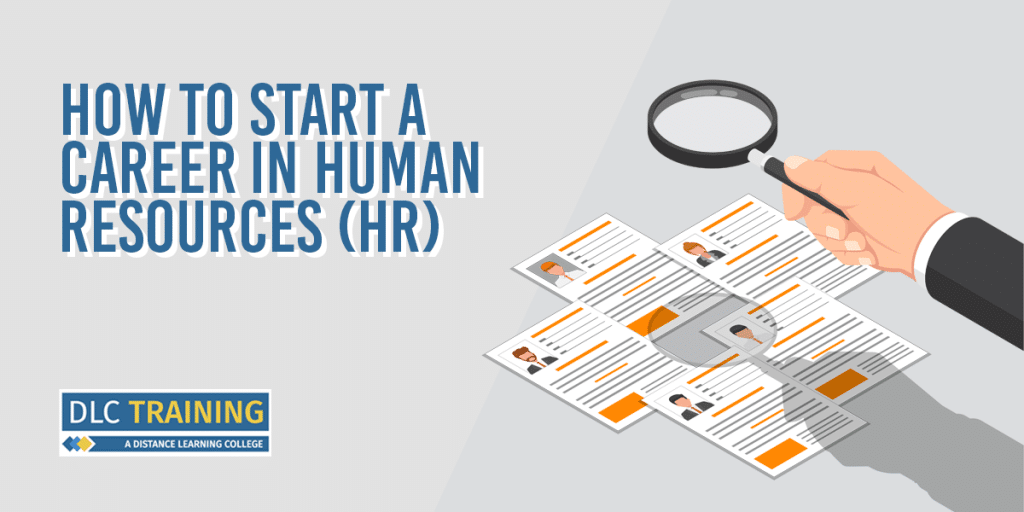Embarking on a career in Human Resources (HR) can be both exciting and rewarding. HR professionals play a vital role in shaping workplace culture, managing talent, and ensuring organisational success.

Understanding the Role of HR
HR is a multifaceted field that encompasses various functions, including recruitment, employee relations, performance management, training and development, compensation and benefits, ethical standards, and law compliance. As an HR professional, you’ll be responsible for attracting and retaining talent, developing policies, fostering a positive work environment, and ensuring that the organisation complies with employment regulations.
Why Choose a HR Career?
A career in HR offers a unique opportunity to impact an organisation from the ground up. It is a people-centric role, so you will have a great impact on employees at all levels. From offering support to organising training and development, this role can be very fulfilling for those that thrive by helping others.
Because HR focuses on people, it plays a significant role in in shaping workplace culture. This could be considered as one of the most important roles in the organisation. Without a positive work environment, businesses can struggle with a lack of productivity and growth. Those who want to make a meaningful impact while also having a lot of responsibility will find this role extremely rewarding.
The dynamic nature of the HR role means that no two days are the same, which can make the job very interesting and engaging. Because of the importance of HR, establishing a career in this field promises job stability as well as growth potential. If you are someone who enjoys diversity and challenges in your work, while also having the opportunity for growth and development, this may be the role for you.
Still deciding if HR is for you? Take our quiz.
Starting A Career in HR
There are many ways to develop a career path in HR career, but where to start? It’s important to consider education, experience, and building essential, industry-relevant skills.
H3: Educational Background and Qualifications
To begin a career in HR, a strong educational foundation is essential. Most HR positions require a related qualification via the academic route, such as college or university, or the professional route, via the Chartered Institute of Personnel Development (CIPD). Unlike a university, no priori qualifications are needed to study the CIPD course. Find out more about CIPD’s online HR course.
Gaining Relevant Experience
Experience is crucial in HR. Internships or part-time jobs, in HR can provide valuable insights and practical skills. Look for opportunities to get involved in various HR activities, such as recruiting, onboarding, and employee relations. The hands-on experience will not only bolster your CV but also help you determine which HR specialties you enjoy most.
Building Essential Skills
HR professionals need a diverse skill set to be effective. Some key skills include:
- Communication
- Problem solving
- Conflict resolution
- Organisational skills
- Empathy
Communication
Clear and effective communication is vital for interacting with employees, management, and external partners. This is especially true for HR, as you will be involved with challenging discussions and sensitive subject matters.
Problem Solving
HR often deals with complex issues that impact both employees and the organisation. It’s therefore important for HR professionals to be able to generate diverse ideas and innovative solutions.
Conflict Resolution
Disputes can occur in a business, whether between employees or between employees and management. HR professionals need to be able to handle these disputes effectively by working as a mediator.
Organisational Skills
Because the HR role is so diverse, a key skill for HR employees includes managing multiple tasks at once. They also need to be able to prioritise these tasks in order of importance. Situations can quickly change in the business environment, because of this they also need to be adept at switching between tasks when necessary.
Empathy
Empathy is an important skill when working in HR. Because the role is people-centric, understanding and addressing employee concerns with compassion and fairness is key.
Network and Professional Development
Building a network within the HR community can provide support, mentorship, and job opportunities. Join professional organisations like CIPD. Attend conferences, workshops, and seminars to stay updated on the latest HR trends and vest practices. Networking with other HR professionals can also lead to valuable job referrals and career advice.
Navigating the Job Market
When you’re ready to enter the job market, start by crafting a strong CV that highlights your education, experience, and relevant skills. Tailor your CV and cover letter to each job application, emphasising how your background aligns with the job requirements. Utilise job websites, company websites, and LinkedIn to search for HR positions. Consider working with a recruiter who specialises in HR placements to increase your chances of finding the right job.
Starting a career in HR requires a blend of education and continuous learning. By building a solid foundation, developing essential skills, and actively engaging in professional development, you can navigate the path to becoming a successful HR professional.
Want to know more about developing a career in HR? Contact us today or visit our online HR course page.